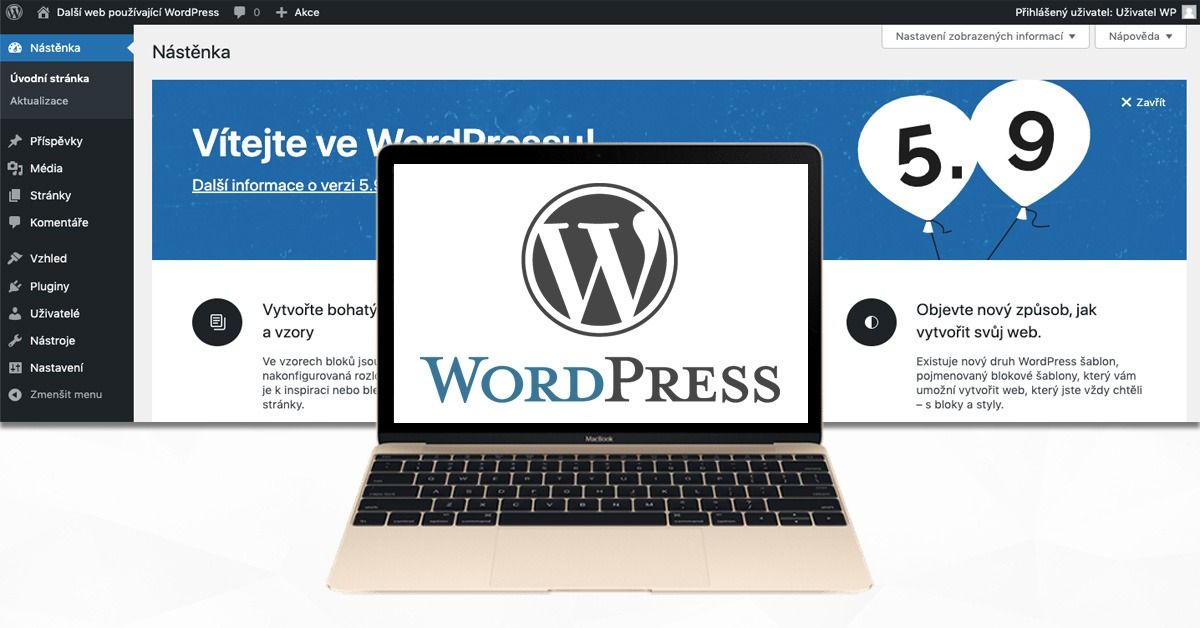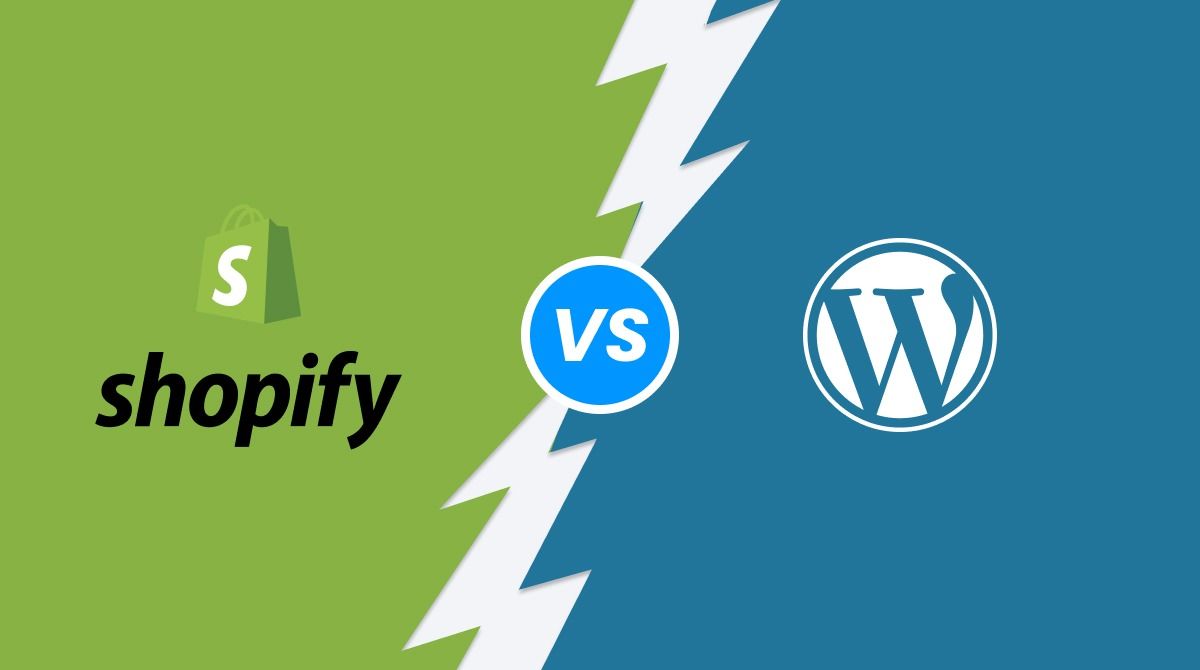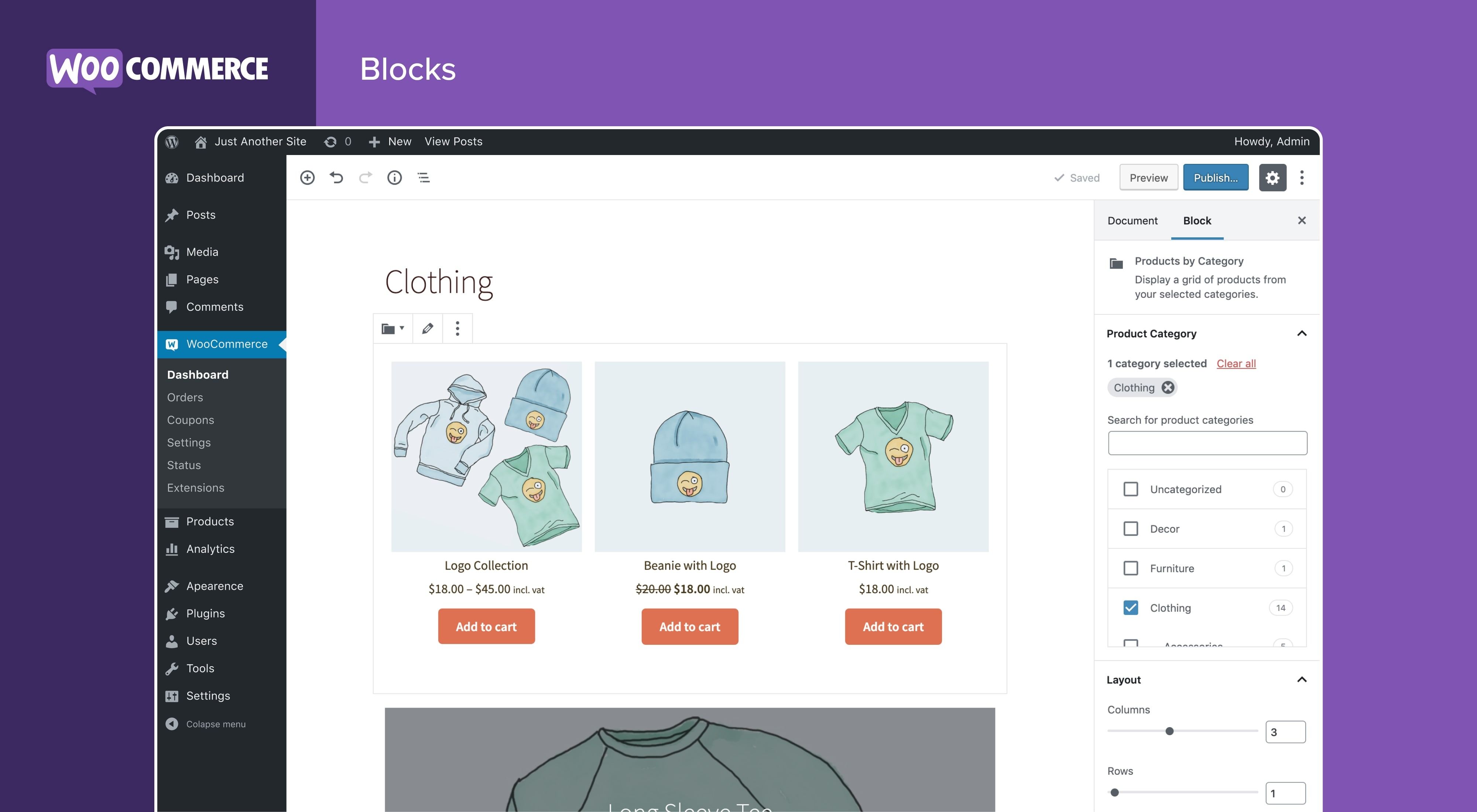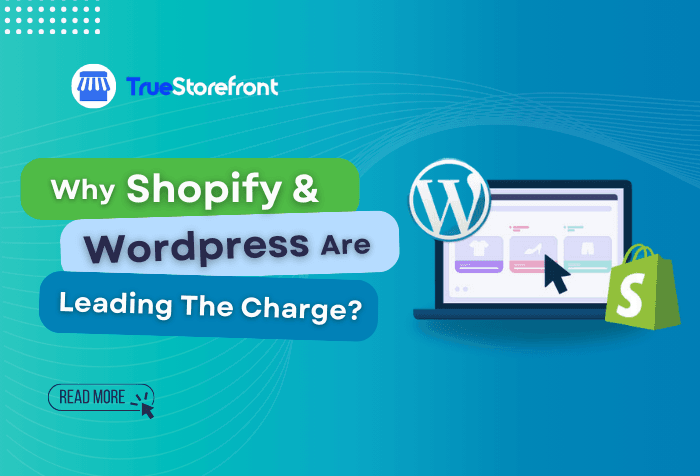Shopify and WordPress are two of the leading platforms that have been captivating users through their flexibility, customization, and other impactful benefits across the globe.
Due to that particular reason, millions of online stores have opted for Shopify and WordPress directly or indirectly in the last few years.
This blog post will explain the importance of Shopify and WordPress in enhancing the productivity and impacts of the e-commerce industry. Without further ado, let us start!
Why Shopify and Wordpress is handy for e-commerce business?
First of words, let's go through the main reasons why these top-notch platforms are right for e-commerce projects.
E-commerce Shopify stores

Shopify enables small or large businesses to sell anywhere and unites all sales, customers, products, and business data within a central platform. Many small and large businesses create an online store on Shopify and incorporate other sales channels such as Facebook, Amazon, Instagram, brick-and-mortar stores, or in-person mobile sales.
Shopify is a go-to option for businesses using a scalable and user-assisted platform. It delights customers through advanced and customizable sales tools, integrations, and custom themes to streamline online sales management activities worldwide.
WordPress online business

WordPress is a comprehensive content management system reshaping the e-commerce industry across the globe. Likewise, it boasts a massive library of WooCommerce plugins, themes, and extensions that help WordPress site owners, WordPress developers, and other stakeholders revolutionize their online e-commerce stores in the right direction.
The affordability, customization, and flexibility make WordPress a near-perfect platform for newbies and seasoned business owners worldwide. It provides users with many impressive yet results-driven features that can allow any business to succeed in the long run.
Apart from this, WordPress does help businesses improve their SEO efforts and practices appropriately. They can develop engaging yet powerful permalinks using their desired keywords.
This way, businesses can make their permalinks appealing and informative. Moreover, they can easily rank their sites on leading search engines like Google, Yahoo, Bing, and more.
A snapshot of Shopify and WordPress comparison
So, is Wordpress better than Shopify? Which platform you should go with? Hold up for a while, and explore an overview of both.
Comprehensive comparison: Shopify vs. Wordpress
Let’s take a look at the following comparison table to grab the quick notes about each’s features.
| Features | Shopify | WordPress |
|---|---|---|
| Customization | - A wide range of customizable apps and themes | - Massive customization options, with countless themes, plugins - Ability to edit the underlying code for complete control over the website’s appearance and functionality |
| SEO and Marketing | - Vast library of SEO features, marketing tools - Various apps to leverage such capabilities |
- Various SEO and marketing plugins - Give the user the greater control and innovative tools over their website’s promotion and optimization |
| Performance and Scalability | - Hosted platform that manages performance and scalability on its customers's behalf - Ensures fast load times and allows users to handle high traffic volumes. |
- Performance and scalability depend on the hosting provider and the website's optimization - With the proper setup and optimization, it can handle high traffic and scale well |
| Support and Community | - 24/7 customer support - Vast community of experts and users |
- Enormous global community of users, developers and aspirants |
| Security | - Security updates and maintains the infrastructure - Reducing the burden on users to manage security themselves |
- Responsible for maintaining the security of their websites, including regular updates to the core software, themes, and plugins (However, many security plugins and best practices are available to help protect WordPress sites) |
| Ease of Use | - Customizable, flexible, and user-friendly overall | - Flexible, customizable, and user-conducive content management system |
| Additional Features | - Luxury of compelling features and benefits depending on the pricing plans users select | - Numerous stunning features and benefits to current and new customers regardless of their business sizes and depth |
| Customer Support | - On the customer front, Shopify has an edge over WordPress | - Needs to enhance its performance when solving customer queries and concerns - Customer support function must be immediately upgraded to include all the required attributes. |
| Recommendation Chances | Highly Recommended | Highly Recommended |
Critical differences between Shopify and WordPress
-
Shopify is an excellent e-commerce solution. On the other hand, WordPress highly depends on a famous plugin, WooCommerce.
-
WordPress is extremely flexible and easy to use for newbies and seasoned users. Shopify is also user-friendly and customizable.
-
Shopify has more built-in ecommerce features. On the contrary, WordPress heavily relies on plugins.
Overall, WordPress looks more cost-effective or budget-friendly than Shopify.
Shopify and WordPress usability

As mentioned, Shopify and WordPress are easy-to-use platforms for beginners and experienced users. Shopify allows users to build their preferred online e-commerce stores within minutes. You do not need technical expertise to configure your online store. The platform works best according to your customer’s needs and preferences.
WordPress has followed in Shopify's footsteps in terms of ease of use or usability. It has thousands of impressive plugins, themes, add-ons, and other tools to optimize any online WooCommerce site or store. However, users need to know how to use these plugins and add-ons to revolutionize their online stores to the next level.
How do Shopify and WordPress reform the e-commerce hereafter?
As you know, the digital marketplace has gone from strength to strength in the last decade. In this scenario, one should not undermine the significance of two undisputed giants, Shopify and WordPress.
You can term Shopify an exclusive e-commerce powerhouse with millions of online stores worldwide. Online stores aside, around 2.1 million people utilize Shopify daily.
On the other hand, if we specifically talk about WordPress, the leading content management system, has benefitted from WooCommerce, another impactful plugin. WordPress has helped millions of users develop highly engaging and rewarding sites for customers worldwide. Precisely, over 850 million sites rely on WordPress.
Wordpress with WooCommerce

If you are a blogger or content creator, your preferred choice should be WordPress with WooCommerce. Whether you go with Shopify or WordPress, the choice is yours because you need to cater to the requirements of your diversified customers depending on their specific needs.
All in all, Shopify and WordPress have supercharged the productivity and impacts of the e-commerce industry on a massive scale globally.
Shopify is crucial for dropshipping

Shopify is helpful for dropshipping due to various reasons:
-
User-friendly interface: Users can create a professional-looking store without coding skills.
-
Extensive app ecosystem: Shopify’s app marketplace offers many dropshipping tools that help with product sourcing, pricing, and fulfillment.
-
Scalability: Shopify plans grow with your business, allowing you to scale quickly.
Wrapping things up
In conclusion, both Shopify and Wordpress are right for e-commerce business, and they are continue stirring this landscape up.
You should go with Shopify to build your dream online store without issues. The good thing is that users do not have to utilize various customizable options to get their stores up and running.
Consider using WordPress if you can use tons of customizable plugins and themes. In short, WordPress comes in handy when you want to manage and monitor your stores’ operations according to your demands.
Bear in mind that each platform fits specific requirements and projects, and you need to write things down before deciding to go with any.
